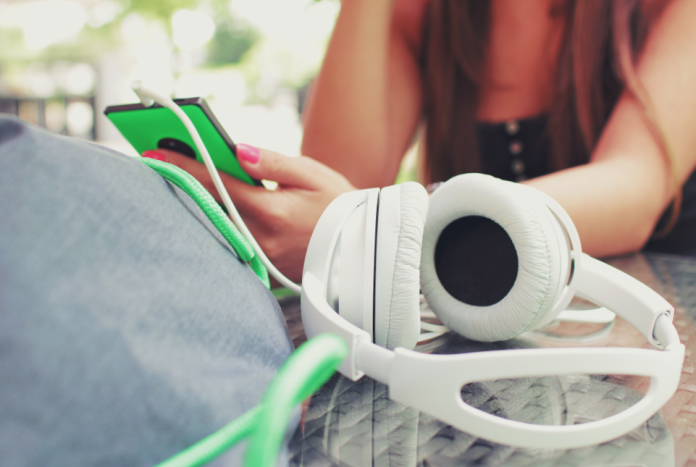Living in a society of abundance as many of us are blessed to, doing too much of something is an easy habit to fall into. Humans – mammalian creatures that we are – are hard wired to move towards things that make us feel good.
In the time of early humans when just surviving the day was a victory, this was actually an important survival mechanism. It provided the motivation to extend ourselves with the promise of a reward at the end of the effort – be it reaching a point of safety, being soothed, or being able to fill our stomachs. In this modern time of plenty however, it is easy to become hooked on the many good things to move towards. Without realising it, these behaviours can become fixed and addictive in nature, leading to a feeling of dis-ease or deprivation if we are forced to go without them. If we dig a little deeper, these behaviours of excess are also often a cover-up for thoughts, feelings, or emotions we would rather avoid.
Habits that can sneak into our lives and take over seemingly without our permission include social media, mindless loitering on the internet, trawling through loads of depersonalised emails, shopping – either online or instore – drinking, smoking, eating, and countless others. Whilst all of these activities can add value and pleasure to our life, when used as mechanisms to feel better or avoid thinking or feeling something, they generally come at a cost.
If this is resonating with you and you would like to become more accountable for your choices the points below may help.
- Start by bringing more awareness to how you are choosing to utilise your time and how vital and fulfilled the activities you find yourself doing make you feel.
- This one is a little out there, but if you feel comfortable it can be illuminating (and admittedly a little confronting) if you ask someone you really care about if there are any behaviours you could do less of that would mean something to them. Although you may feel defensive, see if you can remain open to their response. Ask yourself if this relationship is important enough to you that you would be willing to experiment with doing less of this thing and then assess the impact of this on the relationship. Note – this isn’t an invitation to be controlled by someone else, but more an effort to establish how some of your habits or behaviours may be impacting loved ones.
- If you come to notice an activity you regularly engage in leaves you feeling drained or unfulfilled, has begun to feel out of control, is no longer adding value, or has negative implications for your physical or mental health, you may decide to choose to target this behaviour as something to do less of.
- Once you have decided on a habit or behaviour to target – be compassionate with yourself. These habits haven’t appeared for no reason. They are filling some kind of gap for you, most likely covering some kind of discomfort us humans generally like to avoid. Giving them up may well be difficult, so be kind to yourself about it.
- Rather than telling yourself you MUST give it up. Give yourself permission NOT to. Then ask yourself WHY it might be worth giving up? Why do you want to? Look for your own personal value attached to wanting to do less of this thing. To do this successfully, you first need to front up and be accountable of the behaviour you are choosing and then make a conscious, fully informed choice about it. For example, if cutting down on social media time is your goal – when you become aware you have gone off task online, notice this and then decide what you choose to do next. Remind yourself that it is totally fine to while away the next few hours aimlessly online if that is what you choose. Before you continue, just check in with the value that drove you to want to cut back. Ask yourself how you wish to consciously spend your time. You may well decide to go ahead with the online browsing, but in a more aware way. Instead of whiling away an hour or two, you may decide to set a timer for the amount of time you are comfortable spending this way and then move on to an activity that is meaningful to you and brings you a sense of meaning and vitality.
- If over time, you find you have fallen off the wagon and your habit has slowly crept back into your life, be aware of your thought processes around this. It is easy to get caught in the trap of thinking something is not going to work out because we have relapsed. Our minds might tell us “it’s never going to work, I always slip, there’s no point trying”. At the end of the day, if the behaviour matters to you and the way you want your life to be, it doesn’t matter how many tries it takes. What is most important is to simply remember to return, refocus and repeat the steps above.
- These strategies can be applied to almost any habit or behaviour you want to do less of. They can be boiled down to awareness, self-compassion, connection to the why, accountability to yourself, making a conscious choice based on your personal values, and remembering to return. If the habit you wish to break has developed into a chemical addiction for example in the case of alcohol or nicotine, it is important to seek out professional advice and support.


![5 Reasons You Should Travel Alone Airplane [image source: chau nguyen/ http://thedevilhatessweatpants.blogspot.com.au ], crowd ink, crowdink, crowdink.com, crowdink.com.au](https://crowdink.com/wp-content/uploads/2016/08/Chau-airplane-218x150.jpg)





























